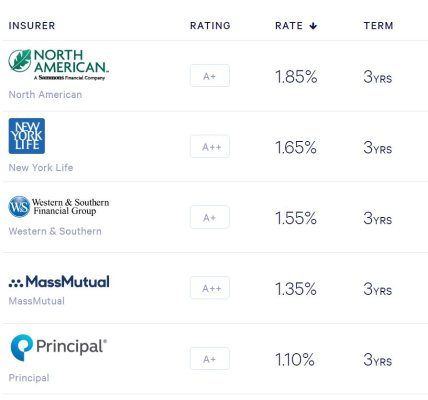Seeking slightly higher income (yes, slightly more risk) than a savings account for a chunk of funds, parked for < 3 year usage.
What would be some index funds in this category? lower risk, some reward.
2021 will be a low income year, so tax considerations are not much of a factor.
Appreciate any suggestions. Thank you.
What would be some index funds in this category? lower risk, some reward.
2021 will be a low income year, so tax considerations are not much of a factor.
Appreciate any suggestions. Thank you.

